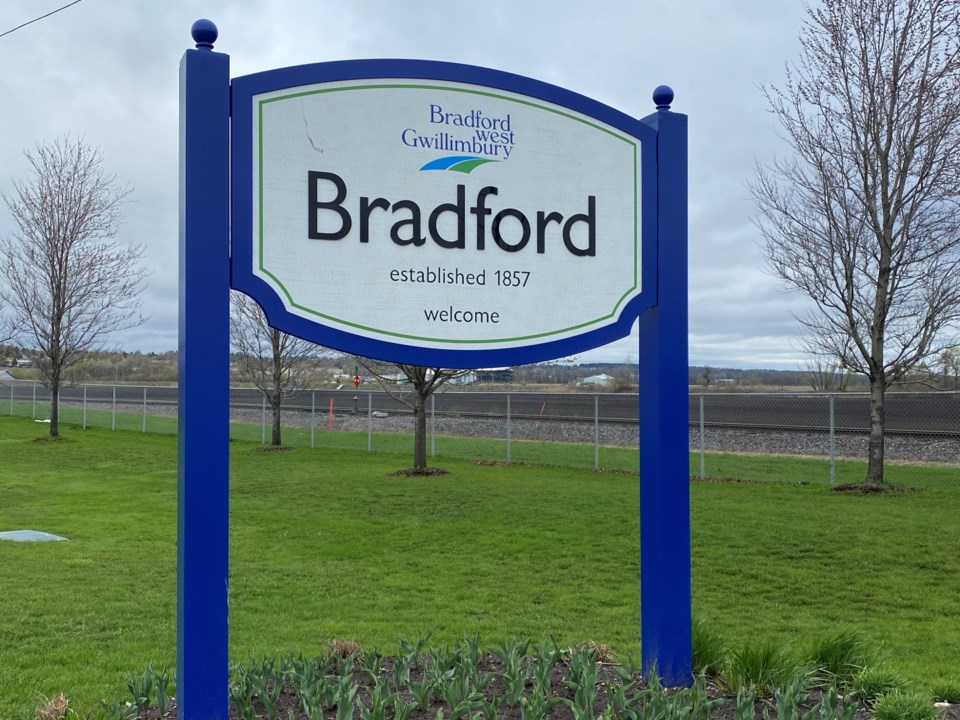Bradford West Gwillimbury has thrown its support behind the efforts to see Quebec’s Bill 21 overturned.
Council unanimously passed a motion condemning the “discriminatory law” at its meeting Tuesday night.
Adopted in June 2019, Bill 21 prohibits the wearing of religious symbols such as hijabs, kippahs and turbans by teachers and other government employees deemed to be in positions of authority. Debate over the law was revived this month with news that a teacher in Chelsea, Que., had been reassigned because of her hijab.
The City of Brampton pledged $100,000 to support a lawsuit aimed at overturning the bill on Dec. 16, a figure quickly matched by the City of Toronto. The motion passed by Bradford West Gwillimbury council Tuesday offered no such financial support.
Regardless, councillors did not feel comfortable sitting on the sidelines of this debate.
“We value living in a Canada where freedom of expression and freedom of religion are fundamental rights and should not be violated by our governments,” said Coun. Jonathan Scott. “For a town such as ourselves, which is growing, and has its own public sector, we want to send a clear message that we’re against this.”
Coun. Raj Sandhu saw the bill as a matter of national pride. He told his colleagues of his experiences while travelling and hearing from locals in those countries of how Canada is at the top of the list for their places to potentially migrate, often because of the anti-discriminatory practices enshrined in the Charter of Rights and Freedoms
“As a Canadian, when you hear that, it makes you proud,” Sandhu said. “And then, to have a Canadian province try to restrict this, it is shameful, if I can say frankly.”
Deputy Mayor James Leduc stressed his opposition to Bill 21 or any religious discrimination and voted in favour of the motion alongside the rest of council, but questioned if this was within the scope of the municipality.
“I’m in Ontario; that’s Quebec. I don’t need to go tell Quebec what to do and I hope that Quebec doesn’t tell me what to do,” Leduc said. “I get upset when we have people telling us where to put the Bradford Bypass and they’re not even from the area. They come and make motions that the Bradford Bypass should be this… they don’t even live in the area and they tell us what to do.”
Leduc argued the best way for residents to show displeasure with the bill would be economically, by not visiting or spending money in Quebec. He also thought a way the town could more appropriately express its displeasure with the bill would be to petition MP Scot Davidson, as the federal government has the power, he suggested, to revoke Bill 21.
While the federal government officially remains quiet, the Province of Ontario, voiced opposition to the bill, via its legislature, in 2019. But Sandhu argued the matter before his colleagues was of greater importance than an infrastructure project and that the town had a right to act.
“I do understand where the deputy mayor is coming from because it bothered us when we had motions against the Bradford Bypass,” he said. “But any given day I would stand up to racism and we can’t compare that to a bypass coming into a town. If this were a matter of infrastructure issue in Quebec, I would agree, but this is standing up for people’s human rights. I don’t care if it’s in Ottawa, I don’t care if it’s in Quebec or anywhere else in this county or in the world, if I am in a position to speak up, I will speak up and do my part.”
-With files from the Canadian Press



